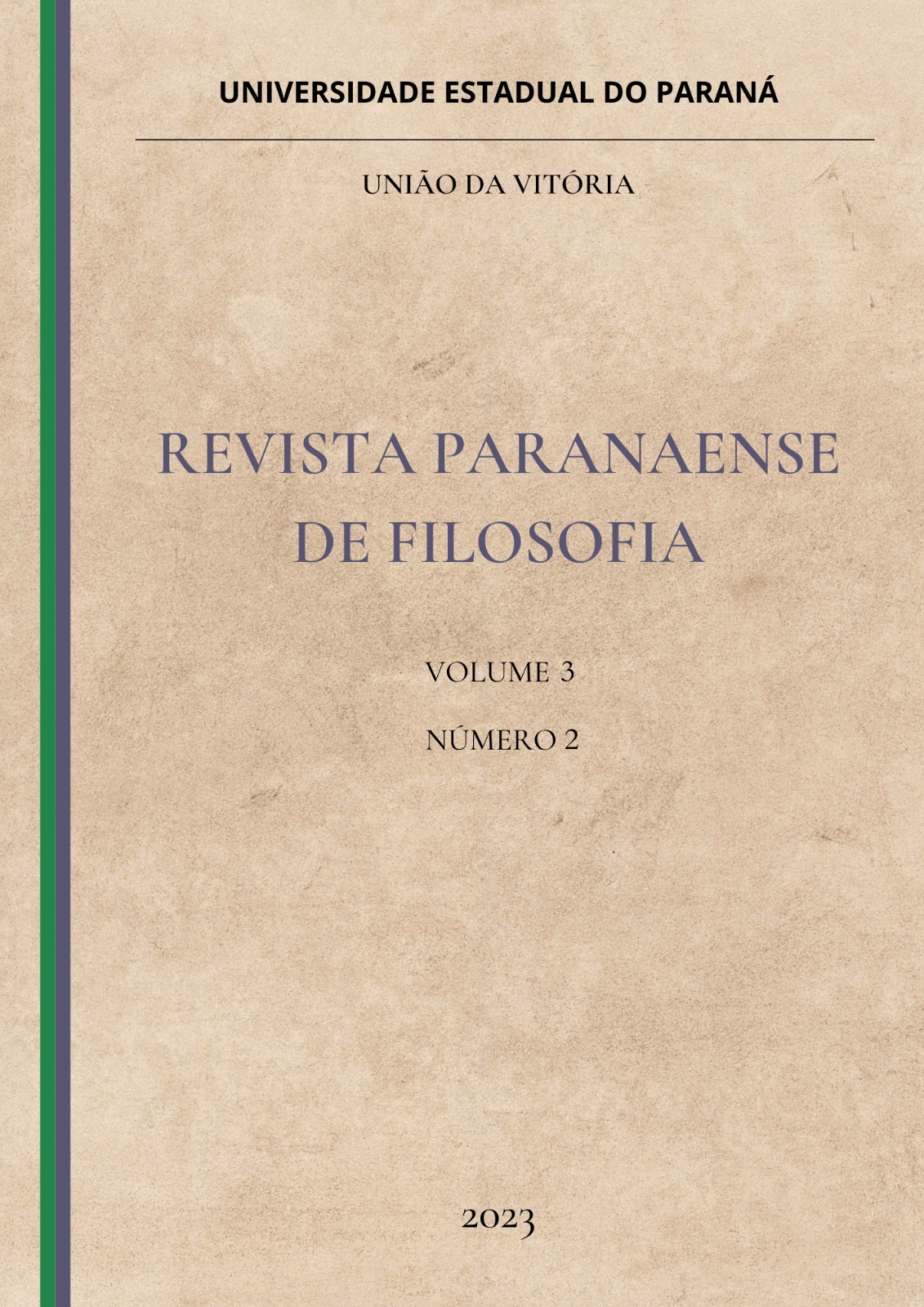NATUREZA, POESIA, RITMO E MELODIA DA VIDA
O tempo do camponês, do marinheiro e do guerreiro
DOI:
https://doi.org/10.33871/27639657.2023.3.2.8254Keywords:
Marinha, Agricultura, GuerraAbstract
The struggle for survival awakened in man the recognition of Nature (Phýsis) as immortal forces. This experience was important to expand the power of observation, action and communication between the divine and human world for social, political and pedagogical (re)organization. In the works of Homer and Hesiod we can find the combination of the beauty of human creation that is the result of this inspired and troubled dialogue with Nature. This article aims to present some reflections on the process of Greek cultural development through the image of the peasant, the sailor and the warrior that we find in some ancient sources that served as an existential horizon to find their eudaimonia in antiquity.
Downloads
References
ARISTÓTELES. “A constituição dos atenienses”, tradução de Delfim Ferreira Leão. Editora Fundação Calouste Gulbenkian ; 2011.
__________. “Ética a Nicômaco”. Coleção: Os pensadores. São Paulo: Nova Cultural, 1987.
BURKERT, W. “Greek Religion”, Harvard University Press; 1985
CHADWICK, J. “The Mycenaean World” Cambridge University Press ; 1976.
COLE, T. “Democritus and the Sources of Greek Anthropology”. Cleveland: Western Reserve University Press; 1967.
DETIENNE, M. “Os mestres da Verdade na Grécia Arcaica”, Trad. Andréa Daher. Rio de Janeiro: Jorge Zahar; 1988.
FINLEY, M.I “Early Greece: The Bronze and Archaic Ages”. W. W. Norton & Company; 1982.
GERNET, L. “Recherches sur le développement de la Pensée Juridique et Morale en Grèce: Étude Semantique”. Paris: Ernest Leroux; 1917.
___________. “Droit et Société dans la Grèce Ancienne.” Paris: Recueil Sirey; 1955.
____________. “Droit et institutions en Grèce antique”. Champs-Flammarion; 1982.
M. P. Nilsson “The Mycenaean Origin of Greek Mythology, University of California Press; 1972.
SIN-LÉQI-UNNÍNNI. “Ele que o abismo viu”. Tradução do acádio, introdução e comentários por Jacyntho Lins Brandão. Ed. Autêntica; 2017.
SNELL, B. “ A cultura grega e as origens do pensamento Europeu”, ed. Perspectiva; 1986.
SÓFOCLES. “Antígona” ; introdução, versão do grego e notas de Maria Helena da Rocha Pereira. - 11ª ed. - Lisboa : Fundação Calouste Gulbenkian; 2018.
TUCÍDIDES. “História da Guerra do Peloponeso”, 3ª Ed., tradução Mario da Gama Kury, Brasília: Editora da Unb; 1987.
VERMEULE, E. “Greece in the Bronze Age”, Ed. University of Chicago; 1964
VERNANT, J-P. “As Origens do Pensamento Grego”. Trad. Ísis Borges B. da Fonseca. Rio de Janeiro. Difel; 2002.
WEST, M.L “Studies in the text and transmission of the Iliad”, e K.G. Saur ; 2001.
WOOLLEY, L. “A Forgotten Kingdom”, Ed. Penguin Books;1953.
Downloads
Published
How to Cite
Issue
Section
License
Copyright (c) 2023 Revista Paranaense de Filosofia

This work is licensed under a Creative Commons Attribution 4.0 International License.
Artigo publicado em acesso aberto sob a licença Creative Commons Attribuition 4.0 International Licence.
Os autores cedem o direito exclusivo de primeira publicação à Revista, sendo o trabalho licenciado simultaneamente sob a licença Creative Commons Attribution 4.0 International (CC BY). Esta licença permite que terceiros remixem, adaptem e criem a partir do trabalho publicado, atribuindo o devido crédito de autoria e publicação inicial neste periódico. Os autores têm autorização para assumir contratos adicionais separadamente, para distribuição não exclusiva da versão do trabalho publicada neste periódico (por exemplo: publicar em repositório institucional, em site pessoal, publicar uma tradução ou como capítulo de livro), com reconhecimento de autoria e publicação inicial neste periódico.



